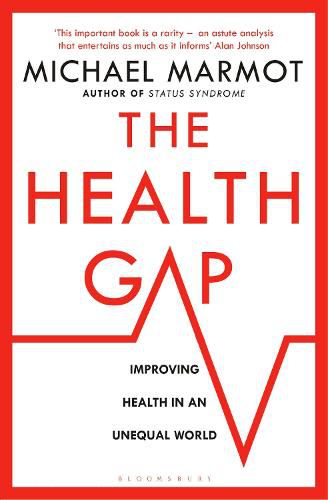Readings Newsletter
Become a Readings Member to make your shopping experience even easier.
Sign in or sign up for free!
You’re not far away from qualifying for FREE standard shipping within Australia
You’ve qualified for FREE standard shipping within Australia
The cart is loading…






There are dramatic differences in health between countries and within countries. But this is not a simple matter of rich and poor. A poor man in Glasgow is rich compared to the average Indian, but the Glaswegian’s life expectancy is 8 years shorter. The Indian is dying of infectious disease linked to his poverty; the Glaswegian of violent death, suicide, heart disease linked to a rich country’s version of disadvantage. In all countries, people at relative social disadvantage suffer health disadvantage, dramatically so. Within countries, the higher the social status of individuals the better is their health.
These health inequalities defy usual explanations. Conventional approaches to improving health have emphasised access to technical solutions - improved medical care, sanitation, and control of disease vectors; or behaviours - smoking, drinking - obesity, linked to diabetes, heart disease and cancer. These approaches only go so far. Creating the conditions for people to lead flourishing lives, and thus empowering individuals and communities, is key to reduction of health inequalities.
In addition to the scale of material success, your position in the social hierarchy also directly affects your health, the higher you are on the social scale, the longer you will live and the better your health will be. As people change rank, so their health risk changes.
What makes these health inequalities unjust is that evidence from round the world shows we know what to do to make them smaller. This new evidence is compelling. It has the potential to change radically the way we think about health, and indeed society.
$9.00 standard shipping within Australia
FREE standard shipping within Australia for orders over $100.00
Express & International shipping calculated at checkout
There are dramatic differences in health between countries and within countries. But this is not a simple matter of rich and poor. A poor man in Glasgow is rich compared to the average Indian, but the Glaswegian’s life expectancy is 8 years shorter. The Indian is dying of infectious disease linked to his poverty; the Glaswegian of violent death, suicide, heart disease linked to a rich country’s version of disadvantage. In all countries, people at relative social disadvantage suffer health disadvantage, dramatically so. Within countries, the higher the social status of individuals the better is their health.
These health inequalities defy usual explanations. Conventional approaches to improving health have emphasised access to technical solutions - improved medical care, sanitation, and control of disease vectors; or behaviours - smoking, drinking - obesity, linked to diabetes, heart disease and cancer. These approaches only go so far. Creating the conditions for people to lead flourishing lives, and thus empowering individuals and communities, is key to reduction of health inequalities.
In addition to the scale of material success, your position in the social hierarchy also directly affects your health, the higher you are on the social scale, the longer you will live and the better your health will be. As people change rank, so their health risk changes.
What makes these health inequalities unjust is that evidence from round the world shows we know what to do to make them smaller. This new evidence is compelling. It has the potential to change radically the way we think about health, and indeed society.